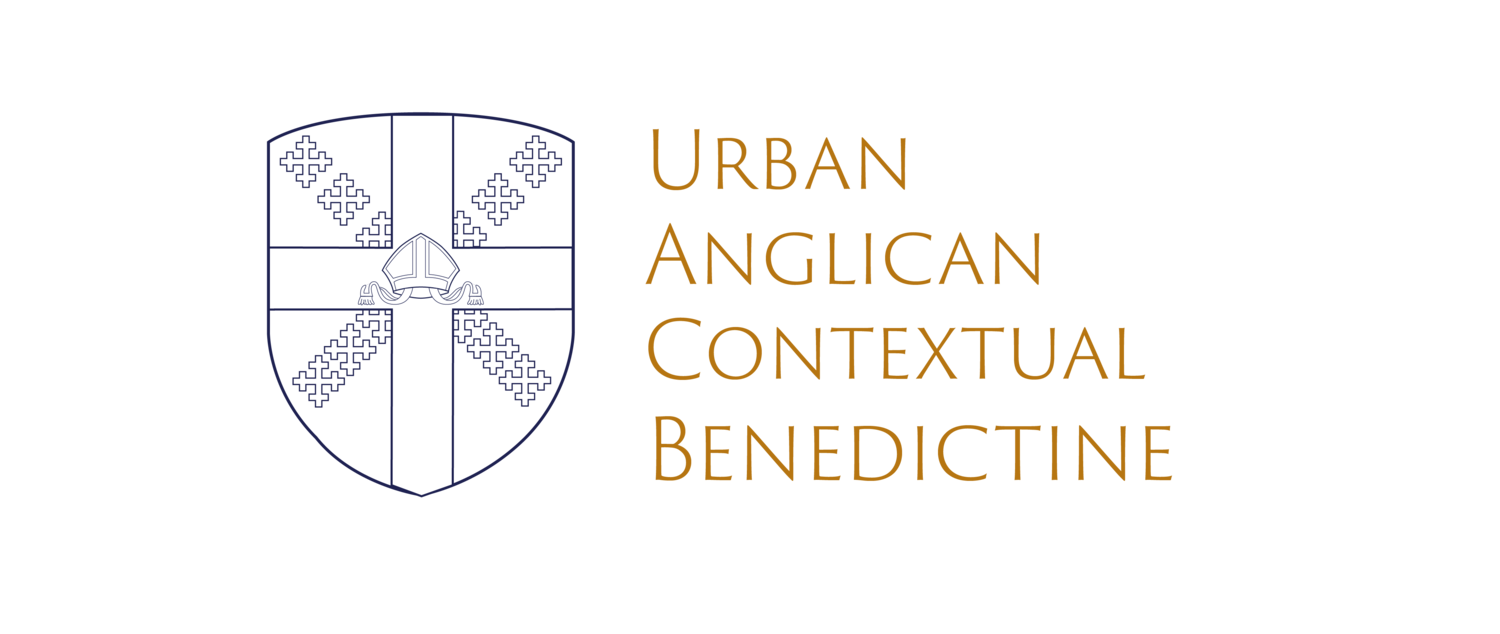
Committed to assuring and enhancing the quality of teaching and learning.
Accreditation
The General Theological Seminary is accredited by The Commission on Accrediting of The Association of Theological Schools by virtue of its affiliation with Virginia Theological Seminary, and the following degree programs are approved:
Master of Divinity
The Commission contact information is:
The Commission on Accrediting of The Association of Theological Schools
10 Summit Park Drive
Pittsburgh, PA 15275 USA
Telephone: 412-788-6505
Fax: 412-788-6510
Website: www.ats.edu
Appendix L: The General Theological Seminary Process for Complaints and Grievances (from the GTS Academic Catalog (link here))
The General Theological Seminary is committed to providing an educational climate that is conducive to the education and formation of each individual. In order to ensure that commitment, the Seminary has developed procedures for students to pursue grievances within the Seminary community, should such action become necessary. A student who has an unresolved disagreement or dissatisfaction with a faculty or staff member, another student, student group or administrator has the right to file a written complaint without prejudicing his or her status with the Seminary. This policy applies to problems not covered elsewhere, for example, Academic Hearings, Catalog Appendix B: FERPA, Appendix G: Incident Reporting or the Employee Handbook. For NYSED and NC-SARA complaints please refer to Appendix M.
Definition: A complaint involves a concern, problem or issue other than a disciplinary measure. (The appropriate response to a disciplinary measure which is deemed unfair or excessive, or dissatisfaction with a grade, or progression, probation, or dismissal from a program, is an appeal, not a complaint. Appeals are made through established Seminary procedures which are outlined elsewhere in the Catalog). Complaints may be academic or nonacademic.
An academic complaint may be brought by a student regarding the Seminary’s provision of education and academic services affecting his/her role as a student. Academic grievances can include but are not limited to the following types of allegations: discriminatory action toward students within the classroom by a faculty member, e.g., by singling out specific students for either preferential or adverse treatment; failure of a faculty member to follow Seminary policies in the conduct of classes or examinations; or capricious or unreasonable arbitrary actions by a faculty member that adversely affects student performance.
The student must have first attempted to resolve the issue by approaching the faculty member, and then, where appropriate, before filing a written complaint. A non-academic complaint may be brought by a student regarding a disagreement or unresolved dissatisfaction with a faculty or staff member, another student, student group or administrator. In most cases, the student should first have attempted to resolve the issue by approaching the person(s) involved, and then the appropriate Dean or supervisor, before filing a written complaint.
Process: The student is encouraged to attempt to resolve all grievances at the lowest possible level. The student should first discuss the problem or complaint with the person whose decision or action is being contested and then with the person’s supervisor. If the grievance cannot be resolved at that level, the student can submit a formal complaint in writing to Melody Knowles, Senior Vice President for Academic Affairs and Chief Academic Officer (mknowles@vts.edu). A complaint must be based on a claimed violation of a Seminary rule or policy that has not been resolved through ordinary processes.
Any student who brings a complaint has the burden of proof and must provide documentation and evidence to support the allegation. A complaint should normally be filed within 10 working days of the incident or incidents.
All of the degree programs comply with the standards of the New York State Education Department, and are officially listed by the department's Office of College and University Evaluation as meeting or exceeding its “minimum quality standards.” The General Theological Seminary has also been approved to participate in the National Council for State Authorization Reciprocity Agreements (NC-SARA).
Overview of the NC-SARA and NYSED Complaint Process
This information is also found in Appendix M of the Academic Catalog (link here).
Appendix M: NC-SARA AND NYSED COMPLAINT PROCESS
The General Theological Seminary is approved to participate in the National Council for State Authorization Reciprocity Agreements (NC-SARA). A number of U.S. states and territories have entered into a voluntary agreement called the State Authorization Reciprocity Agreement (SARA) that establishes one set of national standards and regulations for offering certain out of state activities.
Under NC-SARA rules, out-of-state distance education enrolled students have the right to lodge a complaint or grievance if that student’s experience in an online program is not what they anticipate. In-state distance education enrolled students follow OCUE (Office of College and University Evaluation) - NYSED process. Note that complaints regarding grades and general student conduct issues are not governed by this distance education complaint process.
To learn more information about the NC-SARA complaint process,
please click below
Please note: Student complaints should first be heard by the Seminary following guidelines listed in Appendix L of the Academic Catalog (link here).
If not resolved internally, all out-of-state distance education enrolled students can contact GTS’ home state SARA Portal (listed below), within two years of the incident. More information about the New York State-Education Department’s complaint procedures can be found at https://www.nysed.gov/college-university-evaluation/sara-student-complaint-process or contact GTS’ home state SARA Portal Entity (listed below).
Andrea Richards
Supervisor of Higher Education Programs
New York State Education Department 89
Washington Avenue
Albany, NY 12234
(518) 474-1551
IHEauthorize@nysed.gov
The NC-SARA complaint process applies to out-of-state distance education students. Information related to NC-SARA complaint procedures is provided through this site: https://nc-sara.org/sara-student-complaints-0/
In-state distance enrolled students should direct their complaints to OCUE (Office of College and University Evaluation) - NYSED within 5 years.

Statement on Educational Effectiveness
The General Theological Seminary is committed to assuring and enhancing the quality of teaching and learning. We believe that the process of gathering assessment data, analyzing this data, and acting in ways that respond to assessment data is an integral part of our collective vocation. Assessment and evaluation are the means by which we will:
equip students to self-reflect on their progress toward program-level student learning outcomes (through the portfolio, thesis, substantive paper or project);
demonstrate, through direct and indirect means, that student learning has occurred, as measured against student learning outcomes (portfolio, course evaluation and faculty review of portfolios);
ensure the quality of educational offerings (questionnaires, course evaluations, and outcomes assessment) and;
pursue ongoing quality enhancement of programs by providing better access to assessment and evaluation data and facilitating conversations about this data within the community.
At General, we use the following four instruments as the key means by which we assess and evaluate student earning:
ATS Questionnaires (ESQ and GSQ surveys): A set of two questionnaires provided by ATS which are administered by the Registrar to students upon entering (Entering Student Questionnaire), graduation (Graduating Student Questionnaire).
Course Evaluations: An electronic evaluation of all courses which is administered by the Registrar and used to both ascertain student satisfaction and student self-reporting of learning outcomes engagement.
Portfolio and Capstone Assignments: An assessment strategy which enables students to critically reflect on their own learning progress and which provides the institution with direct evidence of learning as measured against program outcomes.
Targeted Coursework Evaluation: Termly benchmarking of student learning outcomes attainment through regular sampling of student work.
Our full Statement on Educational Effectiveness can be seen here.
In addition to the above, broad measures, such as graduation and placement rates are also tracked along with various financial aid indicators.
Association of Theological Schools Accreditation Visit
The General Theological Seminary is hosting a comprehensive evaluation visit for reaffirmation of accreditation by the ATS Commission on Accrediting on October 21-23, 2024. The purpose of this visit is to verify that the school meets all applicable Commission Standards of Accreditation. Comments regarding how well the school meets those standards and/or generally demonstrates educational quality may be sent to accrediting@ats.edu at least two weeks before the visit. Comments may also or instead be sent in writing to The Very Rev. Michael DeLashmutt, Senior Vice President at GTS, at delashmutt@gts.edu. All comments will be shared with the onsite evaluation committee.

